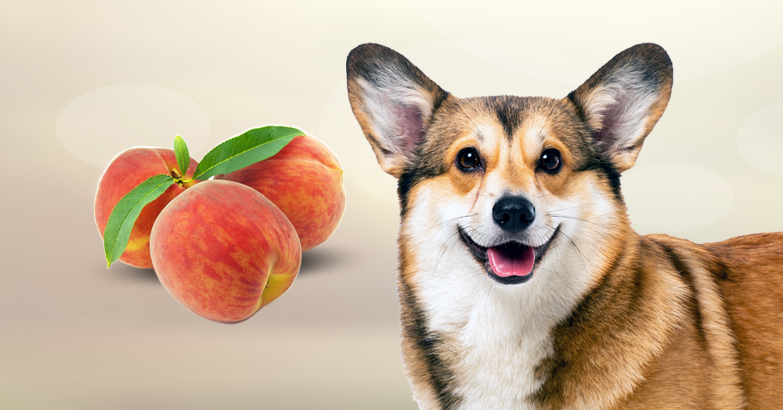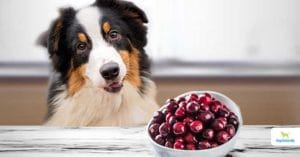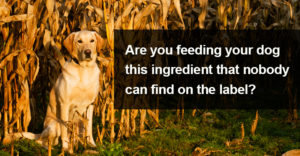Peaches are a delicious and juicy summer fruit that many of us enjoy. But can your dog also indulge in this delightful treat?
The answer is yes, dogs can eat peaches. But there are some things you need to keep in mind before feeding this fruit to your dog.
Read on to find out about the benefits of peaches for dogs … which parts of the fruit are safe for them, and what precautions to take.
Can Dogs Eat Peaches Safely?
Yes, dogs can eat peaches safely … with some significant cautions.
This fruit isn’t toxic to dogs. In fact, you’ll see below that it’s packed with benefits.
But peaches still need to be fed in moderation … and certain parts of the fruit can be risky. So you’ll need to make sure you’re buying and preparing peaches properly if you want to share them with your dog.
What Parts Of The Peach Can Dogs Eat?
In general, the flesh of ripe peaches is the best and safest part of the fruit for dogs to consume. Peach skin is also fine in moderation. It’s that pesky pit you want to be careful with.
Here’s a closer look at what’s safe and what’s not:
Safe – Peach Flesh
The soft and juicy part of the peach is safe for dogs to eat. Just make sure to feed it in moderation, as it does contain sugar and excessive amounts may cause digestive upset.
Note: Berries are a better fruit choice for most dogs, because they’re low in sugar.
Safe When Organic – Peach Skin
The skin of a peach is also safe for dogs to eat. Small amounts are unlikely to cause harm, but you can also choose to remove the skin before offering peaches to your dog if you prefer. The skin adds fiber to your dog’s diet … but make sure you buy organic to avoid pesticide or herbicide residues (keep reading to learn more about Pesticides in Peaches).
NOT Safe – Peach Pits
Peach pits or seeds should never be given to dogs. First, they’re a choking hazard and could even cause an intestinal blockage. And they also contain amygdalin, a substance that converts to cyanide in the gut. So, swallowing or chewing on a peach pit can lead to serious health issues for your pup, including cyanide poisoning.
Even in people, cyanide can cause severe stomach upset, difficulty breathing, low blood pressure, and in severe cases organ failure and even death. Even though one peach pit doesn’t contain much cyanide, it could still be harmful, especially to small dogs or puppies.
Always make sure your dog can’t get hold of peach pits, and discard them safely in closed trash. If you’re a composter, keep your dog away from the compost pile! Call your vet or the Pet Poison Helpline (855-764-7661) if your dog eats a peach pit.
Caution: Peaches aren’t the only fruit with toxic pits. Plums, mangoes and cherries are other stone fruits where you’ll need to remove the pit before sharing with your dog, and discard the pit safely where your dog can’t reach it.
Aside from the fresh or frozen fruit, canned and dried peaches are popular. Let’s take a look at those.
RELATED: What fruits can dog eat?
Can Dogs Eat Canned Peaches?
No. When it comes to canned peaches, they’re best avoided altogether.
Canned peaches often contain added sugars and preservatives, which can be harmful to dogs. Stick to fresh peaches and avoid canned ones.
Can Dogs Eat Dried Peaches?
No, dried peaches are not good for dogs. While dried fruits are rich in nutrients, drying fruits concentrates their sugar content. And some dried fruits may contain harmful additives like sulfites, which can be toxic to dogs. Sulfites have been shown to cause thiamine deficiency which can lead to neurological problems like seizures. (Beware of sulfites in dog chews like bully sticks for this reason).
Peach Benefits For Dogs
As long as they’re fed safely, peaches are more than a delectable summer snack. They also offer potential health benefits for our pups.
Here are a few ways peaches might be able to boost your dog’s health:
1. Nutrients: Peaches are a great source of essential vitamins and minerals, including vitamin A and vitamin C. Vitamin A plays a vital role in maintaining healthy vision, skin, and immune function, while vitamin C is an antioxidant that supports your pup’s immune system and helps protect his cells from free radical damage.
2. Dietary Fiber: Peaches are also a good source of dietary fiber, which means they can aid in digestion and promote bowel regularity for dogs. Fiber helps keep the digestive system healthy and can be especially beneficial if your dog has issues with constipation or irregular bowel movements.
3. Hydration: Did you know peaches are around 89% water? So they can also contribute to your dog’s water needs, especially on hot days. Proper hydration is essential for maintaining overall health and preventing issues like heatstroke. If you know your pup tends to not drink enough water, adding some hydrating fruits like peaches to his diet may help.
Pesticides In Peaches
Peaches are #4 on the Environmental Working Group’s Dirty Dozen list of foods high in pesticides. In 2021, 99% of peaches tested were contaminated with pesticide residues. Conventionally grown peach crops are treated with insecticides that harm bees and wildlife, and fungicides that are linked to liver damage. Peaches are even sprayed after harvesting, to keep fruit from spoiling.
In 2021, Department of Agriculture testing found hormone-disrupting chemicals on 90% of 500 peach samples, and 56 different pesticides overall. One peach sample could have traces of up to 19 different chemicals, and more than 65% of peach samples had residues of 4 or more pesticides.
So, for both you and your dog, it’s really important to eat organic peaches to minimize the risk of harmful chemicals.
RELATED: Pesticides in dog foods …
Moderation Is Key
While peaches can offer these benefits, it’s essential to remember they should only be fed in moderation as a treat or in small amounts with a meal. Too many peaches can lead to gastrointestinal upset, and the high sugar content can be problematic in large quantities. Although they’re a natural and healthier alternative to sugary treats, too much sugar from peaches can still lead to weight gain and other health issues.
In short: treat peaches as an occasional addition to your dog’s diet, rather than a staple.
As with any new food, it’s best to introduce peaches gradually and monitor your pup’s response. Most dogs may tolerate peaches well, but others may experience upset stomachs or loose stools.
Again, always feed organic peaches to avoid pesticide or herbicide residues, and if you give your dog the skin, wash it first.
With proper caution and care, you can treat your dog to a delicious bite of peach on a warm summer day!
FAQ
Here are some other common questions we receive from dog owners about peaches for dogs …
Can Dogs Eat White Peaches?
Yes, dogs can eat white peaches in moderation, as they provide essential nutrients and hydration. Just make sure to remove the pit.
Can Dogs Eat Peach Skin?
Yes, small amounts of peach skin are generally safe for dogs, but only if you buy organic peaches. Remove the skin to reduce the risk of digestive issues.
Can Dogs Eat Peach Pits?
No, dogs should not eat peach pits as they contain cyanide that can poison your dog. They can also be a serious choking hazard or cause an intestinal blockage.
Can Dogs Eat Yellow Peaches?
Yes, dogs can eat yellow peaches in moderation, and they offer nutritional benefits when given as an occasional treat. Just make sure to remove the pit.
References
Singh M, Thompson M, Sullivan N, Child G. Thiamine deficiency in dogs due to the feeding of sulphite preserved meat. Aust Vet J. 2005 Jul;83(7):412-7
Bolarinwa IF, Orfila C, Morgan MR. Amygdalin content of seeds, kernels and food products commercially-available in the UK. Food Chem. 2014;152:133-9.












